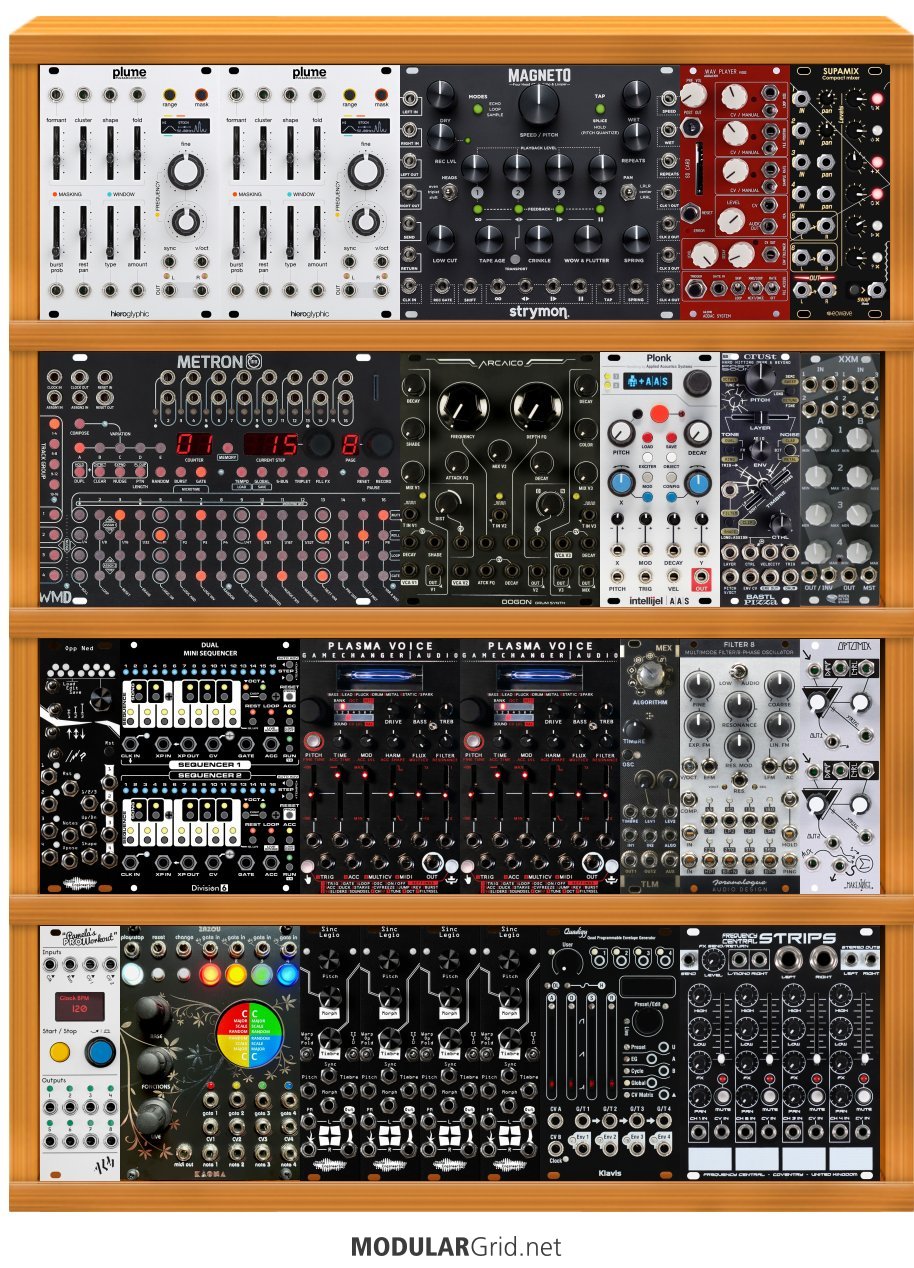there, i stayed up all night, and designed a second completely self contained 12u 84hp system, just to make you happy, zachsname.
do you like it better? is it modular enough, now? too many oscillators, eh? eh? eh? eh?
just give me some honest feedback, on just the design.
(its more modest, now. better?)
peace.
peace.
peace.
-- singular_soundthere, i stayed up all night, and designed a second completely self contained 12u 84hp system, just to make you happy, zachsname.
do you like it better? is it modular enough, now? too many oscillators, eh? eh? eh? eh?
just give me some honest feedback, on just the design.
(its more modest, now. better?)
peace.
peace.
peace.
-- singular_sound
The third row is the closest thing to an effective and efficient instrument I've seen so far. If you waited on getting the filter and Opp Ned and replaced them with a Maths, you could start with that row and learn pretty much everything you need to make and plan a big system that makes sense. Two Plasma Voices is also a lot, but that is a much better idea of what kinds of maximalism are available, and they do have built-in synth tools that make them super helpful in a smaller space, so I say go for it on those.
I wouldn't start with Datach'i's hardware when looking at their work for inspiration. I would look at his history and productivity. He was a professional musician long before modern modular became big and these setups became possible. Richard Devine's setup that he used when I saw him live is another good example. I was able to find it on here (like I was able to do with Datach'i's setup), and they both have unique setups heavy on percussion and pings and short triggered sounds in ways that don't rely as much on modulation like envelopes. However, these people have workflows and styles unique to them from working with hardware and software over the years and delivering results according to their specific vision. Most of the stuff in their current Eurorack setups hasn't even been around for more half the time they've been working. They already knew what all this stuff was before it was even designed. It's not really fair to yourself to look at someone like Datach'i and think your system should be comparable now. You need to learn what you need before setting yourself up with those kinds of expectations, and starting with the basics so you know the parameters will help you design unique systems with greater efficiency and accuracy. Your music and what it needs to be is more important than any design.
I imagine the Junkie XL comment is a joke, but remember that his giant wall is a 5U setup and based very much on the kinds of standard modular stuff missing in this setup. I'm not exactly a huge fan of his style (nor do I need to be as long as he doesn't do anything so bad it ruins the movie for me), but he is extremely educated and practical when it comes to owning a giant wall of noise machines. Hans Zimmer is the same - when it's not softsynths, it's usually something fairly oldschool and simple in terms of design. Their big systems are rhe opposite of yours (and that may not be a bad thing - they are the opposite of Datach'i amd Devine as well).
If anything, this is what everyone is trying to get at here with you: the best path to a big modular setups is to find a place in your existing music making system that modular can contribute to and then see how much more modular infects your life from there. Let the virus spread naturally, and don't worry about "design" - worry about playing music.
I don't know where the joke begins and ends with this post exactly, so I'll just say that it's usually a bad sign for your joke when you are consistently telling people it's a joke. That might just be you telling yourself that it is a joke, which is probably not convincing for either of us.


